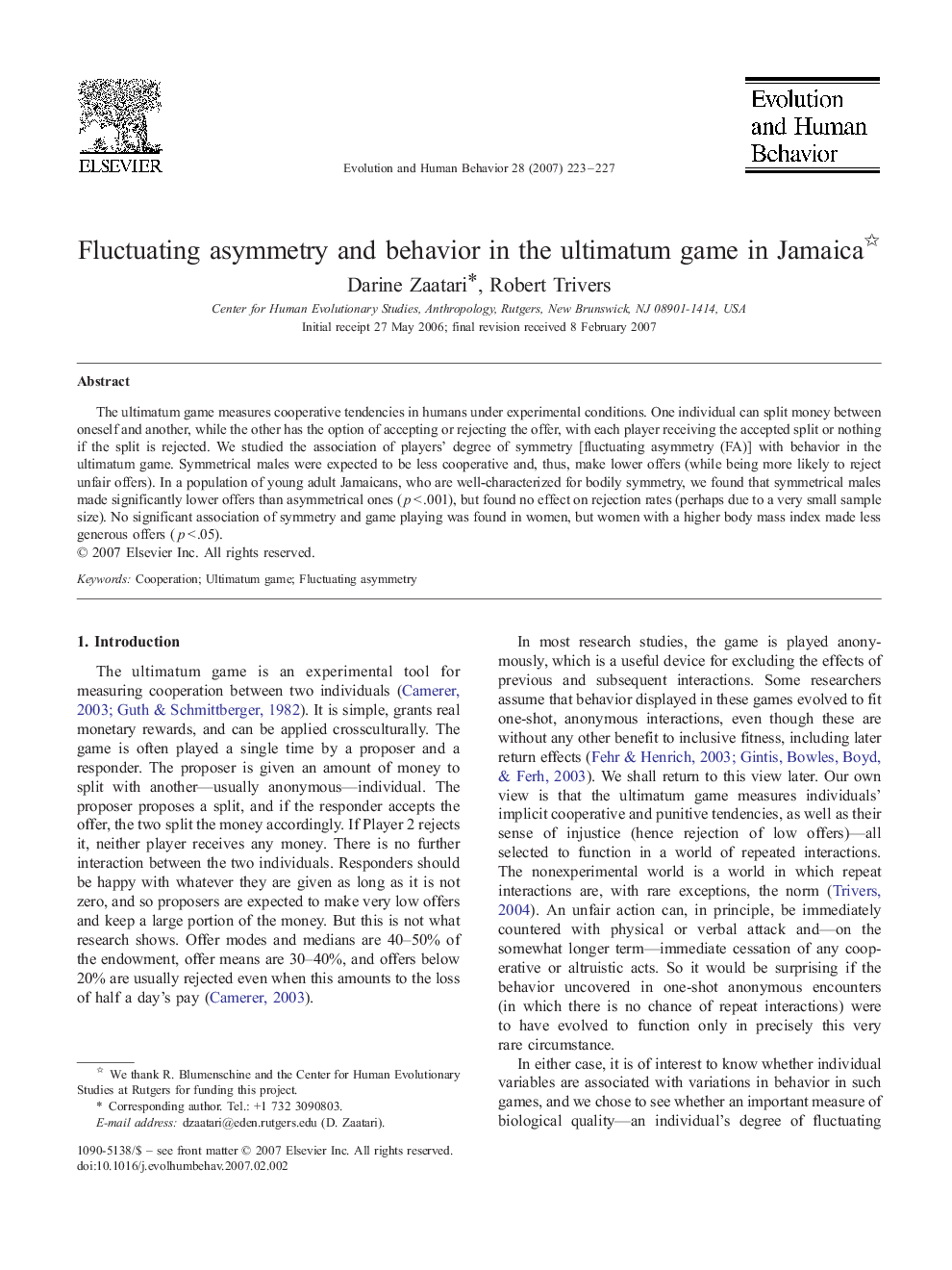| Article ID | Journal | Published Year | Pages | File Type |
|---|---|---|---|---|
| 943636 | Evolution and Human Behavior | 2007 | 5 Pages |
The ultimatum game measures cooperative tendencies in humans under experimental conditions. One individual can split money between oneself and another, while the other has the option of accepting or rejecting the offer, with each player receiving the accepted split or nothing if the split is rejected. We studied the association of players' degree of symmetry [fluctuating asymmetry (FA)] with behavior in the ultimatum game. Symmetrical males were expected to be less cooperative and, thus, make lower offers (while being more likely to reject unfair offers). In a population of young adult Jamaicans, who are well-characterized for bodily symmetry, we found that symmetrical males made significantly lower offers than asymmetrical ones (p<.001), but found no effect on rejection rates (perhaps due to a very small sample size). No significant association of symmetry and game playing was found in women, but women with a higher body mass index made less generous offers (p<.05).
